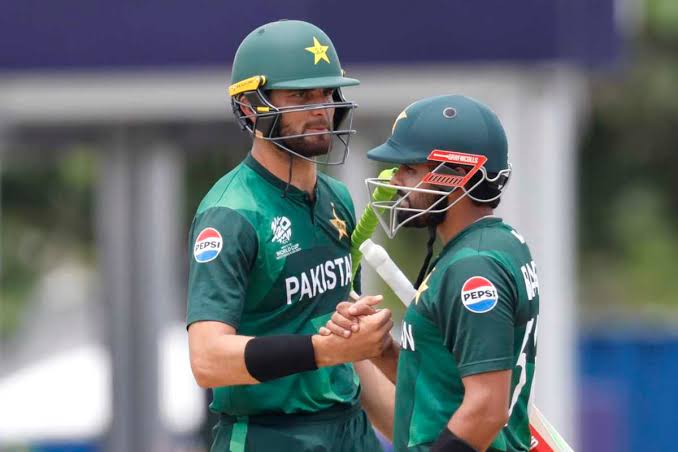Pakistan Cricket’s World Cup Campaign – A Tale of Missed Opportunities and Needed Evolution

Pakistan’s recent World Cup campaign ended on a disappointing and somewhat tragicomic note, underscoring persistent issues within the team’s strategy and execution. Despite starting their Euro 2024 group stage campaign with a win, the French team’s victory was marred by the injury of their star player, Kylian Mbappe, reflecting a similar pattern of mixed fortunes for Pakistan’s cricket team.
The RizBar Conundrum
Central to the critique is the so-called “RizBar” approach, named after Mohammad Rizwan and Babar Azam, who are pivotal to Pakistan’s batting strategy. This method, characterized by cautious play and reliance on setting a foundation, came under scrutiny during the tournament. The middle order, often criticized for its lack of aggression, seemed to justify this conservative approach. Yet, even the RizBar strategy required moments of fearless hitting, as exemplified by Shaheen Shah Afridi’s crucial sixes that relieved pressure in critical situations.
This raises the fundamental question: Is the middle order inherently weak, forcing the team to adopt a conservative approach, or does the conservative approach stifle the middle order’s potential? The World Cup did little to resolve this chicken-and-egg dilemma, leaving the direction for Pakistan cricket unclear.
Babar Azam’s Leadership and Tactical Adjustments
To Babar Azam’s credit, he demonstrated flexibility by taking a demotion in the batting order to promote a more aggressive left-hand opener. However, the overall results remained unsatisfactory. In their final match, Babar showcased his class by maintaining a run-a-ball pace on a challenging surface, but it ultimately wasn’t enough without Afridi’s late-game heroics.
Afridi’s performance was a glimpse of what could have been. His early wickets and aggressive bowling set up a menacing pace attack, highlighting a potential strength that the team failed to fully capitalize on throughout the tournament.
The Need for Modernization and Fearlessness
Imad Wasim’s comments on the necessity of a fearless mindset resonate deeply. Pakistan’s decline from T20 dominance to a more regressive unit signals a need for cultural and strategic shifts within the team. Wasim’s emphasis on the need to shed the fear of failure points to a broader issue within the team’s psyche, influenced by both internal insecurities and the highly emotional reactions of fans.
Babar’s reflection on the selection consistency also highlights a paradox. Despite having a stable core of players, the team’s performance has not reflected the security supposedly afforded to them. This suggests that stability alone is not enough; there needs to be a proactive approach to adapting to modern cricket’s demands.
Game Awareness and Adaptability
Babar’s insights into the need for game awareness and adaptability are crucial. His acknowledgment that cricket requires assessing conditions and responding appropriately rather than sticking to a rigid game plan is a call for greater tactical intelligence. This flexibility is essential, especially in diverse conditions like those encountered in the World Cup.
The failure to progress in conditions that theoretically suited their style of play is particularly frustrating for Pakistan. While some allowance can be made for the loss against the USA due to difficult early conditions, the defeat against India, where they had optimal conditions, highlights a strategic failure.
Future Directions
The campaign’s disappointing end could serve as a pivotal moment for Pakistan cricket if it triggers necessary course corrections. The team must embrace a more modern approach to T20 cricket, characterized by flexibility, fearlessness, and a deeper understanding of game situations.
Cracking the whip on job security might also be necessary. The current comfort zone has not yielded the desired results, indicating that a more competitive and performance-oriented environment could drive better outcomes.
In conclusion, Pakistan’s World Cup journey was a blend of unrealized potential and strategic missteps. Moving forward, the team needs to evolve beyond the RizBar approach, foster a fearless and adaptive mindset, and ensure that game awareness becomes central to their strategy. Only then can Pakistan hope to reclaim its stature in the world of cricket and avoid the pitfalls that marred their recent campaign.


